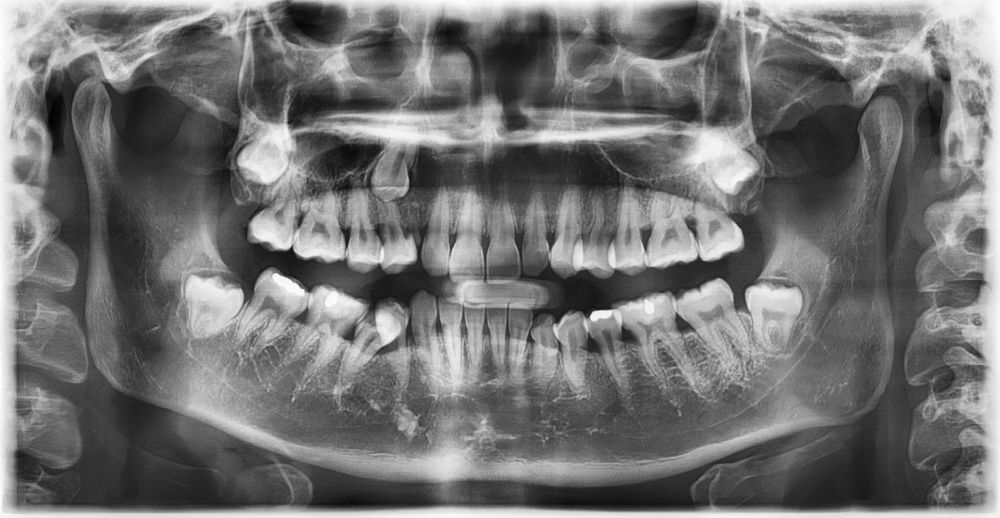Treatment for an Impacted Tooth: What to Expect
 For some patients, the wisdom teeth can cause pain and increase the risk of gum disease and tooth decay. When the wisdom teeth cause oral health issues, wisdom tooth removal can help.
For some patients, the wisdom teeth can cause pain and increase the risk of gum disease and tooth decay. When the wisdom teeth cause oral health issues, wisdom tooth removal can help.
Sometimes the wisdom teeth can become impacted, which can lead to pain, infection, and other oral health issues. Removing impacted teeth is often the best way to protect oral health.
Dr. John P. Goodman provides treatment for an impacted tooth at our Kansas City, MO practice. To find out if treatment is right for you, we welcome you to schedule a consultation.
What Is an Impacted Tooth?
An impacted tooth is a tooth that isn't able to come through the gums, generally because the tooth doesn't have enough room to emerge or develop as it should.
In some cases, a tooth may only be partially impacted. This means the tooth has started to emerge from the gums but cannot fully break through.
Impacted teeth, whether partially or fully impacted, can grow at an angle toward the next adjacent tooth or at an angle away from the tooth. Sometimes, impacted teeth grow in such a way that they are parallel with the jawbone or they may grow straight up but remain stuck within the jawbone.
What Is the Best Treatment for an Impacted Tooth?
An impacted tooth can cause pain and other oral health issues, such as gum disease, tooth decay, damage to surrounding teeth, or cysts around the teeth. When these problems occur, it's important to seek treatment for an impacted tooth.
The primary treatment for impacted teeth is surgical removal. Surgical removal of impacted teeth is typically performed as an outpatient procedure, meaning patients will go home the same day as the surgery.
The Surgical Process for Removing an Impacted Tooth
The treatment process for surgically removing an impacted tooth at our Kansas City practice begins with making the patient comfortable. Most patients only require local anesthesia to numb the mouth.
Once the anesthesia sets in, surgery to remove the impacted tooth can begin. To remove the impacted tooth, an incision is made in the gums and any bone covering the tooth is removed. Once the tooth is reached, it is removed and the newly empty socket is filled with gauze, followed by suturing the incision closed.
What to Expect after Treatment
It's common for patients to experience some pain, swelling, and bleeding after an impacted tooth is extracted. The degree of all three will vary based on the patient as well as the extent that the tooth was impacted.
Our Kansas City patients are provided with detailed instructions on dealing with pain, swelling, bleeding, and other post-surgical care after undergoing surgical extraction of an impacted tooth.
The following are just a few things patients should expect to experience after surgery for an impacted tooth, along with ways to address each issue:
- Pain: Some pain may be expected after surgery. For many patients, an over-the-counter pain medication, such as Tylenol, is sufficient. Prescription pain medication may be given if the teeth were severely impacted.
- Swelling: In the first few days after treatment, patients may find it painful or uncomfortable to fully open their mouths due to swelling that may be present around the jaws. Applying cold compresses to the jaws can help reduce swelling and ease discomfort during the initial recovery.
- Avoid strenuous activity: Although many patients feel recovered enough to return to their normal routine the day after surgery, it's important to avoid strenuous activity for about a week to prevent dislodging the blood clot from the empty socket. If the clot is lost, it can lead to a painful condition called dry socket.
- Stick to soft foods: Patients should stick to soft foods, such as yogurt, soups, and applesauce, for the first day of recovery to prevent irritation to the incision site.
- Take care when cleaning your mouth: It's important not to spit or rinse the mouth aggressively after surgery, as both can dislodge the blood clot in the socket. Also, patients may need to skip brushing in the area for 24 hours to avoid irritating or damaging the wound.
Schedule a Consultation
For more information about treatment for an impacted tooth or other dental treatments, please call (816) 842-8585 to schedule a consultation.


